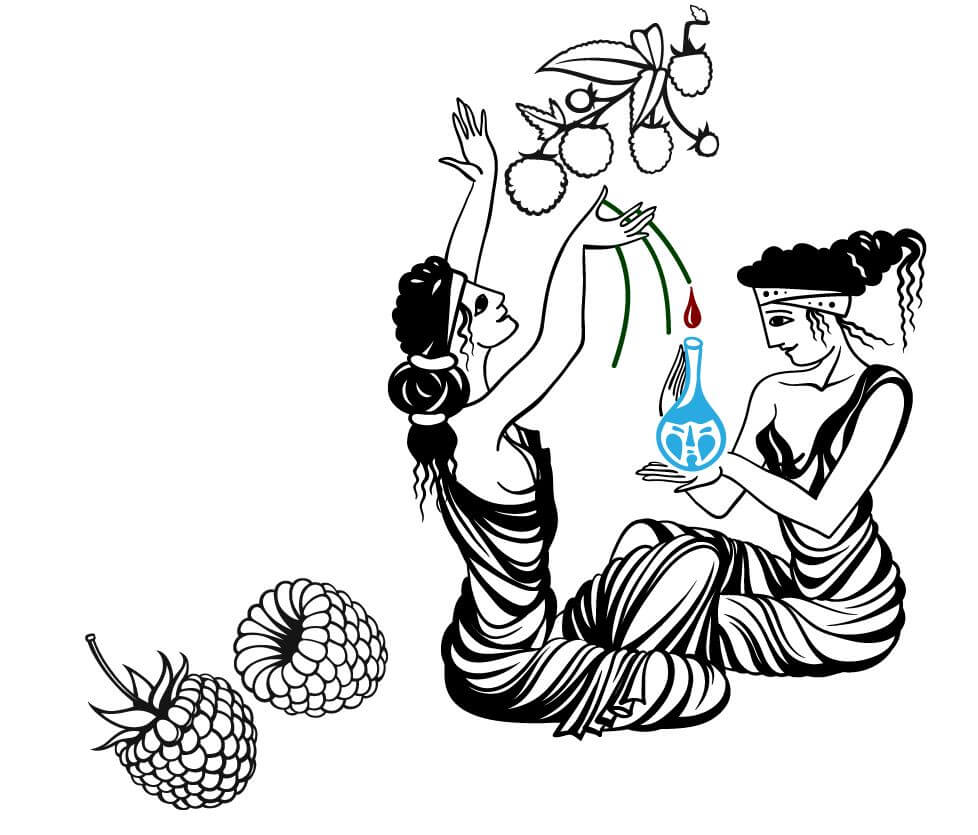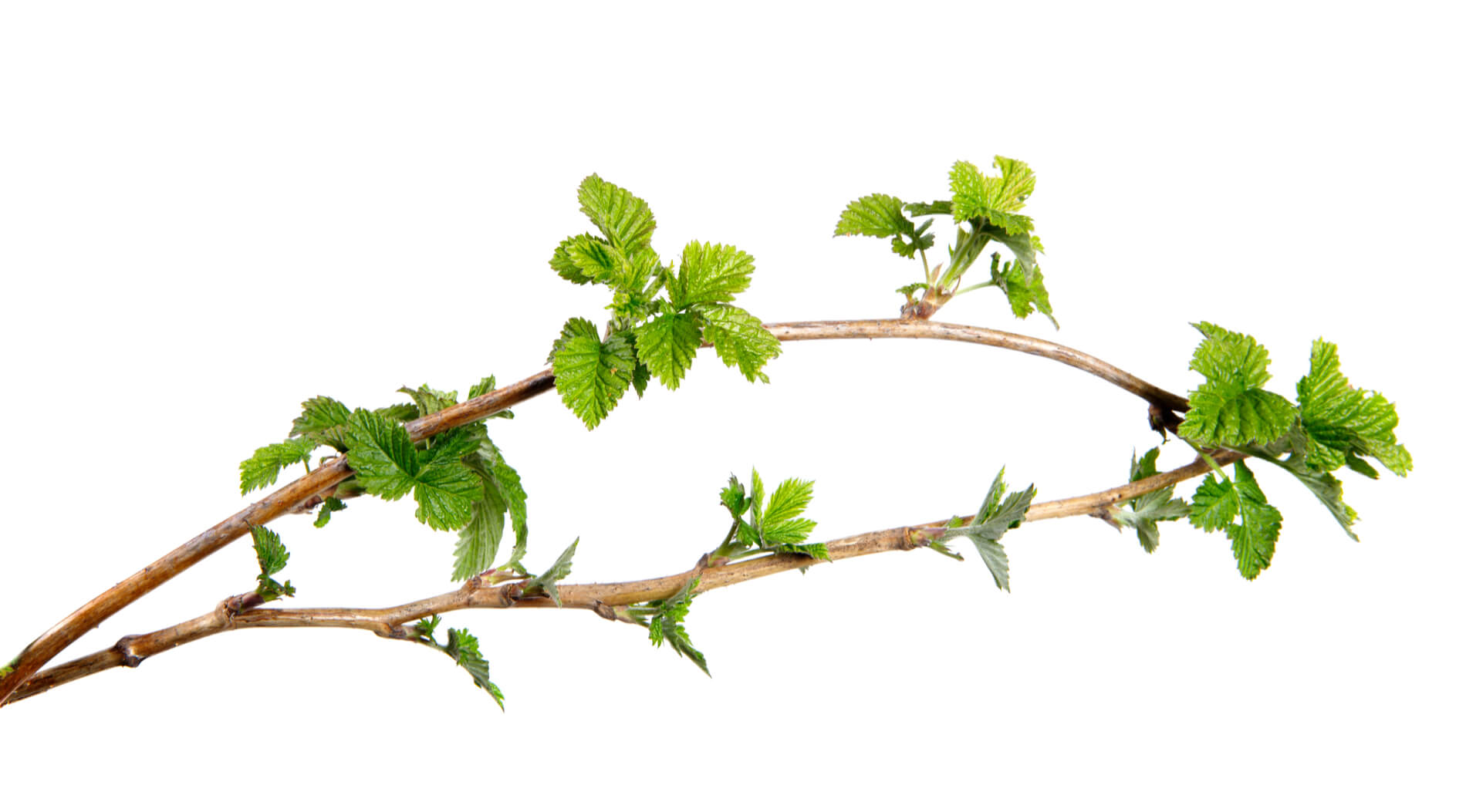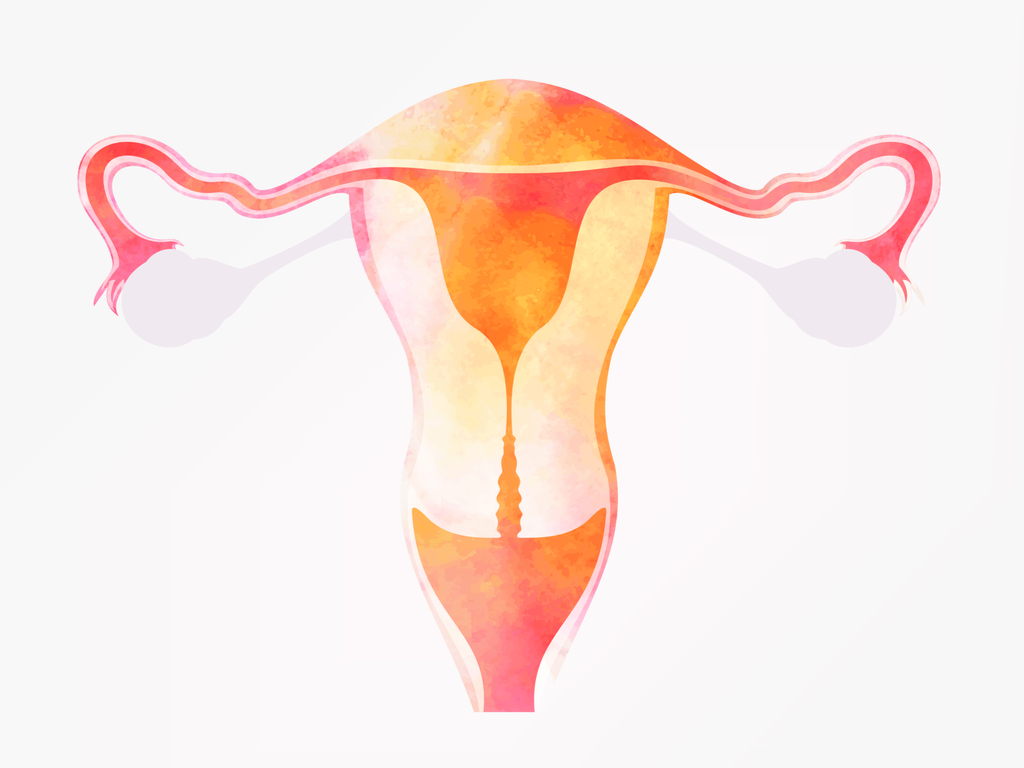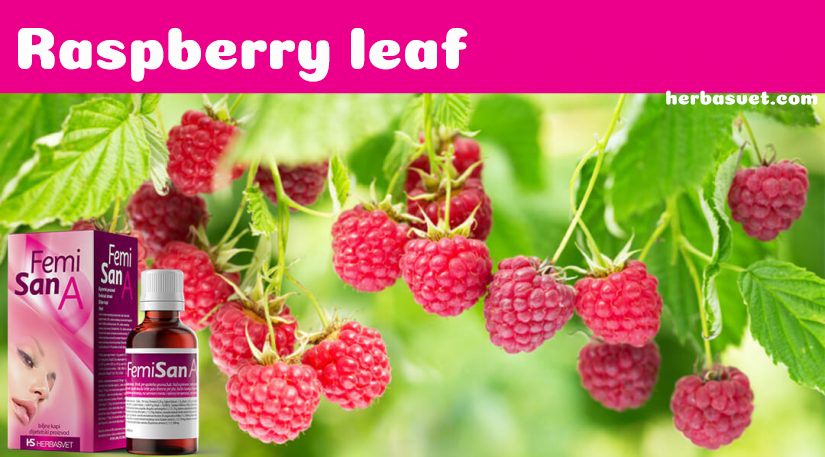While picking raspberries, Zeus’ wet nurse Ida accidentally pricked her finger on a thorn. Raspberries were snow-white at the time, and her blood turned them red. That is what Greek mythology says. This plant, which originated in Asia and which was “sowed” by animals all over the place, is often found in archeological excavations, as an obligatory part of ancient healing materials. Among the natives of America, raspberry twig symbolises fertility, and its generous bearing of fruits wherever it grows is a lesson of nature to us all how to behave and share our precious gifts with others.

Raspberries have always been associated with fertility, kindness and matters of the heart. They do not bear fruit in the first year of growth when they use all their power to strengthen the root. After a year, they are ready to blossom and bear fruit. The symbolism is clear, and our ancestors noticed it early: to achieve abundance and bear fruit, maturity and patience are necessary. The thorns that surround the tender fruit teach us that we must protect what is most precious to us. Those worthy of its fruit must adapt and harvest it carefully, and raspberry will wisely let them do it, knowing that in this way its seeds will be transferred to distant lands which will secure its future. Giving thus ensures gain.
Raspberry fruit is velvety and tender, but its roots are strong. However, its leaf is even more precious than its delicious fruit. Fruit-gathering women realised very early on in history that raspberry leaf could help them. In addition to numerous rituals, amulets, magic and spells, raspberry leaf has proven to be an ideal solution for women’s ailments. It has long been used for painful menstruation, to strengthen the uterus and to help breastfeeding women.

And what do we know today? Our ancestors were right. Raspberry leaf is rich in magnesium, potassium, manganese, selenium, calcium, phosphorus, zinc and iron in particular. It helps with nausea and leg cramps. It is an excellent astringent, it constricts blood vessels and stops heavy bleeding. It is useful for the skin – burns, eczema, rashes – and also helps with gum disease. Vitamins B, C and E boost the immune system and provide energy. It is effective in cleansing the body and has the power to ‘wash out’ the hormones we are exposed to either through food or the environment, so it can help both women and men maintain a good hormonal balance.
Raspberry leaf is of great help to women who are trying to conceive. It strengthens the wall of the uterus, which increases the chances of conception and reduces the risk of miscarriage. It relieves morning sickness during pregnancy and prepares the uterus for childbirth: it helps to give birth faster and easier and to make contractions more effective. After childbirth, it helps to reduce bleeding and swelling and to increase milk production, as well as to balance hormones faster. High levels of iron strengthen the blood, especially after heavy bleeding, while manganese strengthens connective tissues.

How else does raspberry leaf affect the uterus? In the laboratory, the alkaloid fragarine was extracted from it; the alkaloid has the power to simultaneously tone and relax muscles, i.e. to balance their work. In addition to fragarine, strong astringent action of raspberries affects the contraction and strengthening of the uterine wall and pelvic floor muscles. That is why it is excellent for uterine prolapse and heavy, painful menstruation. With raspberries, cramps disappear, partly due to high levels of magnesium. The abundance of calcium in raspberry leaves is easily absorbed, and calcium is very useful during PMS and its unpleasant accompanying symptoms such as nervousness, irritability and mood swings. In that regard, it can help with similar symptoms when entering menopause.
But in addition to making life easier for women, raspberry leaf also helps with intestinal problems and is a traditional solution for diarrhoea. Here again, its power to contract but also relax intestinal muscles and reduce cramps comes to the fore, thus facilitating digestion and reduction of distention. The tannins in its leaves alleviate sore throats and flu and antioxidants strengthen immunity and help us recover faster after illness. Raspberry leaf is a kind of natural tonic that has a beneficial effect on the whole body.

We can enjoy raspberry fruit during its short-lived season every year, but we can always use its leaf. Raspberry leaf is ideal for women in combination with lady’s mantle and yarrow; if marigold, herb robert and parsley seed are added to this then we have the perfect combination – Femisan A drops. Women can find salvation in this completely natural product based on medicinal herbs for irregular menstrual cycles, heavy and painful menstruation, unpleasant PMS, infertility and for more serious disorders such as polycystic ovaries, fibroids, cysts or sores on the cervix.
Femisan A drops can be used from the first period, they are an excellent preparation for pregnancy, but should not be used during pregnancy. They are available to everyone because, as nature teaches us, we must share our gifts with others.

